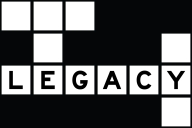You have /5 articles left.
Sign up for a free account or log in.

iStock
Joseph Palermo, professor of history at Sacramento State University, has been writing publicly about his left-of-center political views for years, to little feedback. So he was surprised by the vitriol he experienced recently for asserting in a blog post critical of Donald Trump that climate change is man-made -- a position consistent with the thinking of leading scientists.
“I got death threats, ad hominem attacks, lots of shaming -- putting ‘professor’ in quotation marks -- and someone urging me to go commit suicide,” Palermo said in an interview. “There were about 50 emails and 200 to 250 tweets. … It seemed very much an orchestrated attempt to try to intimidate me.”
Online harassment of academics, who usually have easily accessible web profiles and email addresses, is nothing new. But with many targeted faculty members sharing their stories in recent months, and with political winds blowing in a decidedly anti-science direction, the American Association of University Professors has released a statement condemning actions like those taken against Palermo.
“The AAUP does not dispute the First Amendment rights of [politically oriented news and other] organizations, nor does it call for government censorship or sanction against them,” reads the statement on targeted online harassment. “It does, however, condemn efforts to intimidate or silence faculty members, and it urges others to do so, as well. Governing boards of colleges and universities have a responsibility to defend academic freedom and institutional autonomy, including to protect institutions from undue public interference, by resisting calls for the dismissal of faculty members and by condemning their targeted harassment and intimidation.”
Specifically, AAUP “urges administrations, governing boards and faculties, individually and collectively, to speak out clearly and forcefully to defend academic freedom and to condemn targeted harassment and intimidation of faculty members.”
It also recommends that “administrations and elected faculty bodies work jointly to establish institutional regulations that prohibit the surreptitious recording of classroom discourse or of private meetings between students and faculty members.”
Hans-Joerg Tiede, associate secretary for tenure, academic freedom and governance at AAUP, said the organization was concerned not only about past attacks on scholars, but about those yet to come.
“We’ve seen legislative attacks on academic institutions and tenure, and there is just a general climate developing that is hostile to the role that universities play in society,” he said. “It’s really important in the climate that we’re in right now that governing boards and administrations and faculty members, individually and together, speak out in favor of their colleagues.”
AAUP’s statement does not refer to scholarly or other criticism that is clearly free speech, but rather repeated harassment and intimidation, Tiede said. “This is really about inundating somebody with threats, which, whenever that gets reported, creates a chilling climate” for everyone else, he said.
Palermo, for example, wrote on The Huffington Post in December that “people who dismiss science in one area shouldn’t be able to benefit from science in others,” and so if “Trump and his cohort believe the science of global warming is bogus, then they shouldn’t be allowed to use the science of the internet for their Twitter accounts, the science of global positioning for their drones or the science of nuclear power for their weaponry.”
A number of political blogs picked up the essay, writing that Palermo wanted Trump banned from Twitter because he didn’t believe in climate change. Palermo said he was making a rhetorical point, but that it was lost on his critics -- many of whom accused him of hypocritically advocating that the then president-elect be censored.
Palermo received more messages of hate after he appeared on Fox News’s Tucker Carlson Tonight to defend himself, but struggled momentarily to name a precise source for his assertion that 98 percent of scientists believe in climate change. (For the record, the National Aeronautics and Space Administration says, “Multiple studies published in peer-reviewed scientific journals show that 97 percent or more of actively publishing climate scientists agree: climate-warming trends over the past century are extremely likely due to human activities.”)
Even prior to the flare-up, Palermo said he emailed his faculty union and department chair to alert them that two nonstudents attended his class one day last fall, furiously taking notes and exchanging comments in the back of the lecture hall. That, combined with the advent of websites such as Professor Watchlist, an online registry of “radical” professors, rings of "neo-McCarthyism,” he said.
Beyond Palermo, numerous other professors have claimed intimidation in recent months. Olga Perez Stable Cox, an instructor of psychology at Orange Coast College who was secretly videotaped talking about the results of the presidential election, said she had to leave the state due to threats. Also last fall, the Middle East Studies Association asked the State University of New York at Plattsburgh to affirm the academic freedom of Simona Sharoni, a professor of women’s and gender studies who said she received physical threats over her public comments on the Palestinian-Israeli conflict.
In another case, George Ciccariello-Maher, associate professor of politics and global studies at Drexel University, was criticized for tweeting that all he wanted for Christmas 2016 was "white genocide," which he has previously argued is not a real threat to whites in the U.S. Drexel first strongly condemned the professor's tweet, then backed down somewhat in a second statement, after many academics said the university failed to defend its professor.
Tiede said institutions have had mixed responses to the targeted harassment of faculty members. He praised the University of Madison at Wisconsin, though, for defending a controversial course on whiteness -- and the free speech of its instructor -- to state lawmakers.
Rick Legon, president of the Association of Governing Boards, said his organization hasn’t issued guidelines about online harassment specifically, but that it “would be supportive” of those suggested by the AAUP.
Michael Mann, Distinguished Professor of Atmospheric Science at Pennsylvania State University, who has been targeted both online and legally for his work on climate change -- specifically his "hockey stick" graph suggesting that it is man-made -- helped draft the statement for AAUP. Via email, he said, "I am fortunate in that these attacks were highly publicized and numerous academic and scientific groups and societies came out to support me, and to demand that my institutions -- the University of Virginia and, later, Penn State -- did the right thing and stood up to the pressure campaigns to have me fired from my job."
He added, "What I worry about are the many more academics who are under the radar screen, who don’t have access to the support structure that I had, and are every bit as much or more vulnerable simply because of the research they are doing and because of their willingness to speak truth to power. … Good-faith debate is not only OK, it is welcome -- and critical -- in our academic discourse. But bad-faith smear campaigns and pressure campaigns against academics whose findings or views might seem threatening to powerful interest groups? We must defend academics against that."






